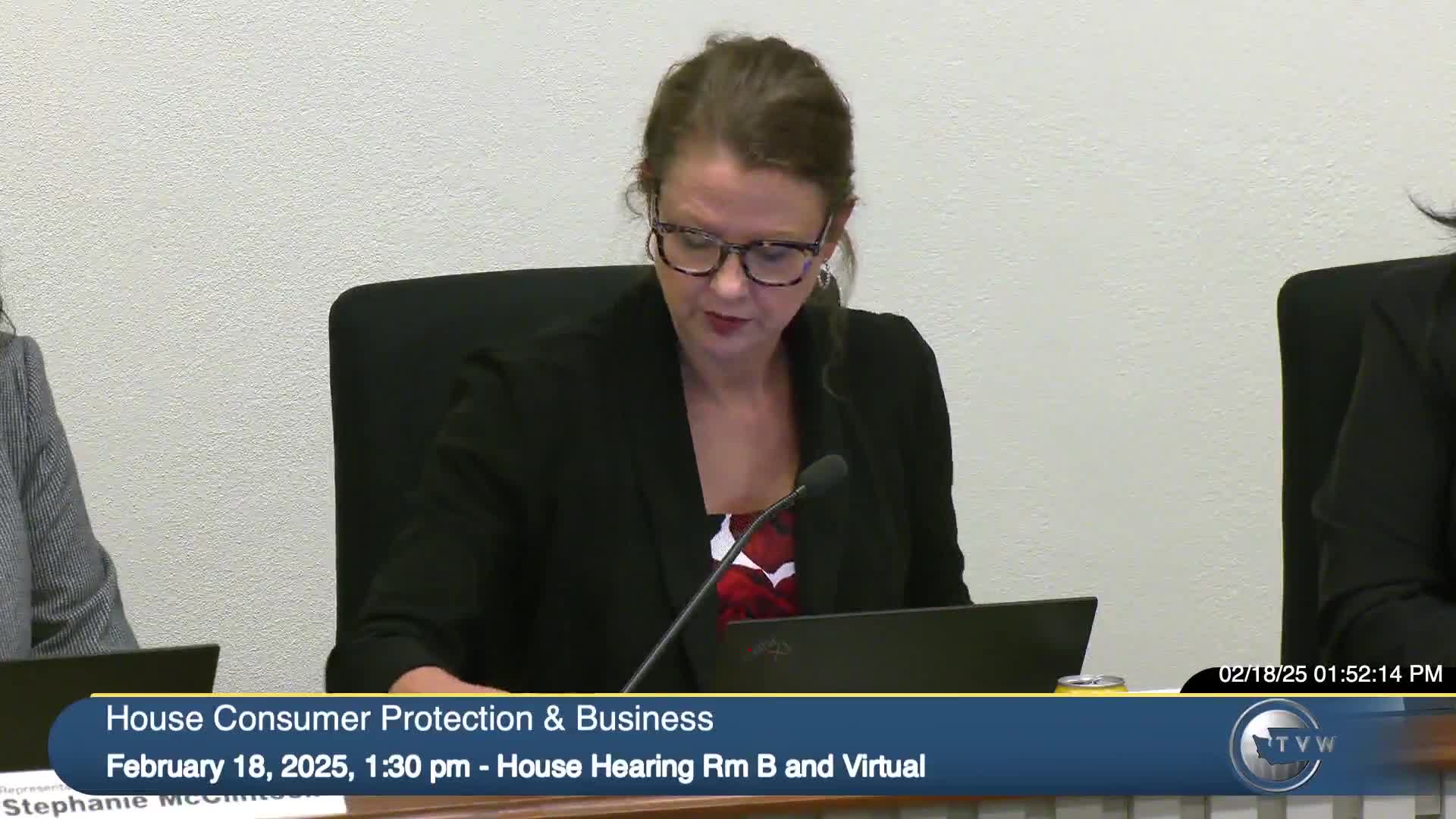Committee hears bill to require banks to flag suspected elder financial exploitation and notify state agencies
Get AI-powered insights, summaries, and transcripts
Subscribe
Summary
A House committee heard testimony on House Bill 1,900, which would require financial institutions to notify DSHS and DFI and to place internal flags on accounts when employees reasonably believe a vulnerable adult’s funds may have been exploited.
A House committee heard testimony on House Bill 1,900, which would require financial institutions to notify the Department of Social and Health Services (DSHS) and the Department of Financial Institutions (DFI) and to place internal flags on accounts when employees reasonably believe a vulnerable adult’s funds may have been exploited.
Committee staff member Peter Klauthbelter told members the bill amends a 2010 law on financial exploitation of vulnerable adults so that institutions that have a reasonable belief must immediately notify DSHS and DFI and place an internal account flag that alerts other employees the account may be the subject of exploitation. Klauthbelter said the bill also expands separate provisions requiring immediate notice to DFI when a financial institution or investment professional reasonably believes individual fraud related to funds or securities may have occurred or is being attempted. He said the flagged information is intended for internal use and the bill does not itself require an institution to refuse a transaction.
Why it matters: The bill aims to tighten the pathway for earlier detection of thefts and scams that target older Washington residents and others considered vulnerable, by creating a formal notice-and-flagging process and by requiring policies for employees to place and act on internal flags.
Sponsor Representative Beth D’Oleo framed the bill with a constituent story to explain the harm she wants to address. "Imagine working all of your life, squirreling away money for your retirement, only to have that all vanish one day due to a criminal absconding with your money," D’Oleo said, and described a constituent who lost what she said was $300,000 to a scam. D’Oleo acknowledged the bill, as drafted, applies narrowly to the statutory definition of "vulnerable adult" and said she would work to expand coverage later in the process.
A woman who identified herself as a victim, asked in the hearing as Ms. Putnam, described the effects of the scam on her life. "I innocently fell into this Internet scam, while clicking on something on Facebook," she said, and described being pressured into rapid transfers and seeing no recovery of the funds. She urged lawmakers to pass protections to prevent similar losses.
Financial-industry witnesses said they support protecting customers but raised operational and privacy concerns about requiring immediate reports during an ongoing investigation. Didi Anderson of Cashmere Valley Bank said existing law already requires banks to promptly investigate and report suspected exploitation, and she warned that "immediately reporting activity during a pending investigation" could lead to inaccurate reports because activity that initially looks suspicious sometimes proves legitimate after investigation. Dennis D’Ambrosio of Heritage Bank said banks have multifaceted training and monitoring systems and expressed concern that an immediate mandatory reporting requirement and flagging would add burdens and operational challenges.
Bill Stoffacher, representing the Securities Industry and Financial Markets Association, said Washington established early protections in 2010 and urged continued stakeholder conversations, warning that state-specific mandates could undercut uniform, industrywide processes. Joe Adamak of the Washington Credit Unions said credit unions support efforts to combat fraud but asked for follow-up on operational issues such as flagging character limits and reporting cycles.
Committee members asked whether the bill creates a "mandatory reporter" role for bank employees and about liability. Staff said the bill would make notice mandatory for institutions in the circumstances described but does not impose individual liability on employees acting in good faith; staff suggested organizations review bill language if they worry about corporate liability.
The hearing concluded with members thanking witnesses and noting interest in working with the sponsor and regulators on operational details and equity concerns, including the risk that defensive freezes or flags could be applied disproportionately.
Ending: The bill remained at the public-hearing stage; no committee vote or final action was recorded during this meeting. Sponsors and stakeholders said they plan follow-up meetings to refine definitions, address fairness and operational constraints, and consider how to expand coverage beyond the current statutory narrowness for "vulnerable adults."
